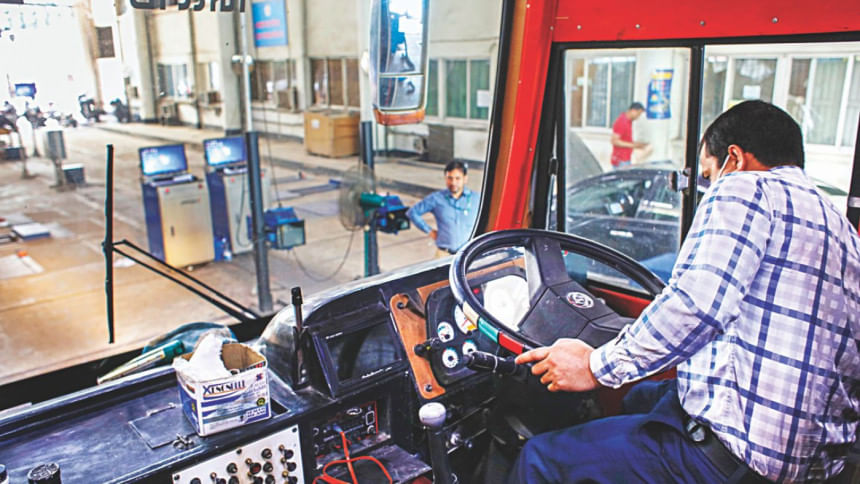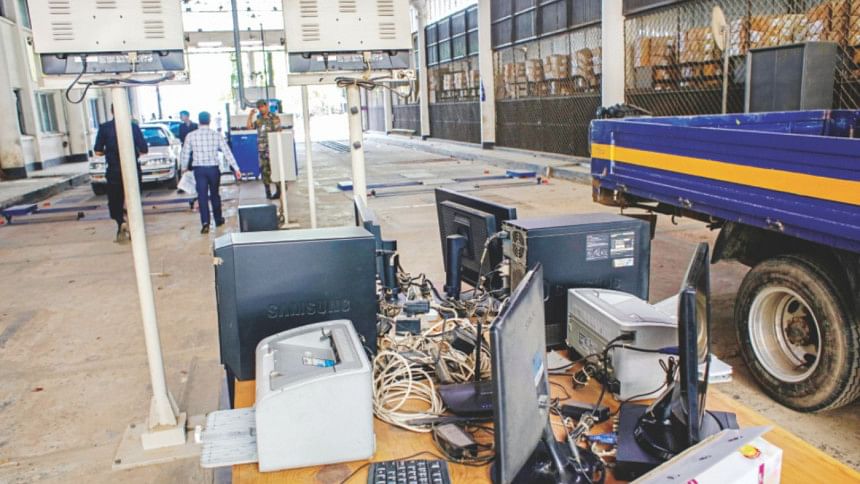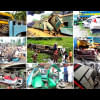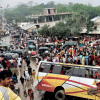From digital to manual

Fitness checks of all buses and trucks registered with BRTA Mirpur office are being done manually, as the only automated vehicle inspection system that had been working broke down three months ago.
Manual inspection of vehicles could compromise safety as it leaves room for manipulation and irregularities.
Many city service buses obtain their fitness certificates from the Bangladesh Road Transport Authority's (BRTA) Mirpur office.
An automated system can get exact performance data of a vehicle's key safety features like headlights, brakes and speed capabilities. Manually, it is almost impossible, experts said.

Vehicle Inspector Ruhul Amin said, “Yes, it is not possible to check everything properly with manual inspections. So, safety is compromised a little bit.”
A team from the Anti-Corruption Commission, after carrying out a drive at the BRTA Mirpur office last month, said the manual inspection system created scope for irregularities.
On March 27, this correspondent spent an hour at the inspection centre during which three buses, one minibus, and two pick-up trucks had their fitness checked manually.
A vehicle inspector, two mechanics, and four to five Ansar men were seen working.
Talking to The Daily Star, one of the mechanics, said only commercial vehicles used to be checked automatically, and the machine used to provide information on emissions, headlights and brakes and also on whether the vehicle was capable of reaching 35kmph.
A sensor in the machine started throwing errors in November and all sensors stopped working in January, he said, adding that the software malfunctioned as well.
“What can we do now but give fitness clearance after checking vehicles manually?” he said wishing not to be named.
He blamed lack of maintenance expertise and overuse of the machine for the breakdown.
After the student movement for road safety in July-August last year, BRTA started automatically checking 70 to 100 vehicles a day. But officials said the machine had the capability to check only 25 to 30 vehicles a day.
The machine that went out of order was not new.
The government installed five such machines in 1997, one each at Mirpur and Ekuria in the capital, and in Chattogram, Khulna and Rajshahi.
But within a few days, BRTA stopped using them as it experienced “technical issues”, said BRTA officials.
However, sources said the automated vehicle inspection project was abandoned for years as “beneficiaries of the manual inspections resisted the use of the machine”.
It took the BRTA almost two decades to refurbish and resume operations of the machine at the Mirpur office. The other four are still not being used.
The machine, which was restored in 2016 under a Tk 24.17 crore project, broke down due to lack of maintenance expertise and overuse, BRTA officials said. Setting up of the BRTA's data centre and procurement of some equipment were under the project, the officials said.
They said they were trying to have the machine fixed with the help of Korea International Cooperation Agency (KICA), which had funded the 2016 project.
They, however, could not say when it will be running again.
Vehicle Inspector Ruhul Amin said they did not get any training on how to use the machine or how to maintain it.
Training on the use of the machine and its maintenance was not part of the project, an official said.
Ruhul said by checking the vehicles manually, they were giving fitness clearance to 150 to 200 buses and trucks a day. Manual checks take less time, he said.
Kazi Md Saifun Newaz, assistant professor of Accident Research Institute (ARI) at Buet, said the BRTA offices face huge pressure of vehicles every day.
“But if you look at it from the safety perspective, some aspects like brakes and emissions must be tested by the machine,” he said, adding that the government should install more such automated machines.
“How come a VIC [vehicle inspection centre] remains inoperative for so long?”
Muhammad Morshedul Alam, assistant director (fitness section) of the BRTA, said they wrote to their higher authorities who in turn have talked to KICA.
BRTA Director (operations) Sitanghsu Shekhar Biswas told The Daily Star on Sunday that they asked the ministry concerned for Tk 12 lakh to repair the machine.
“Once we get the funds, the repairs will start,” he said.
Until December last year, about 38 lakh vehicles were registered with the BRTA. Of them, 24.5 lakh are motorcycles and do not require annual fitness certificates.
On average, some 6.5 lakh vehicles obtain fitness certificates every year, a BRTA official said.

 For all latest news, follow The Daily Star's Google News channel.
For all latest news, follow The Daily Star's Google News channel. 








Comments